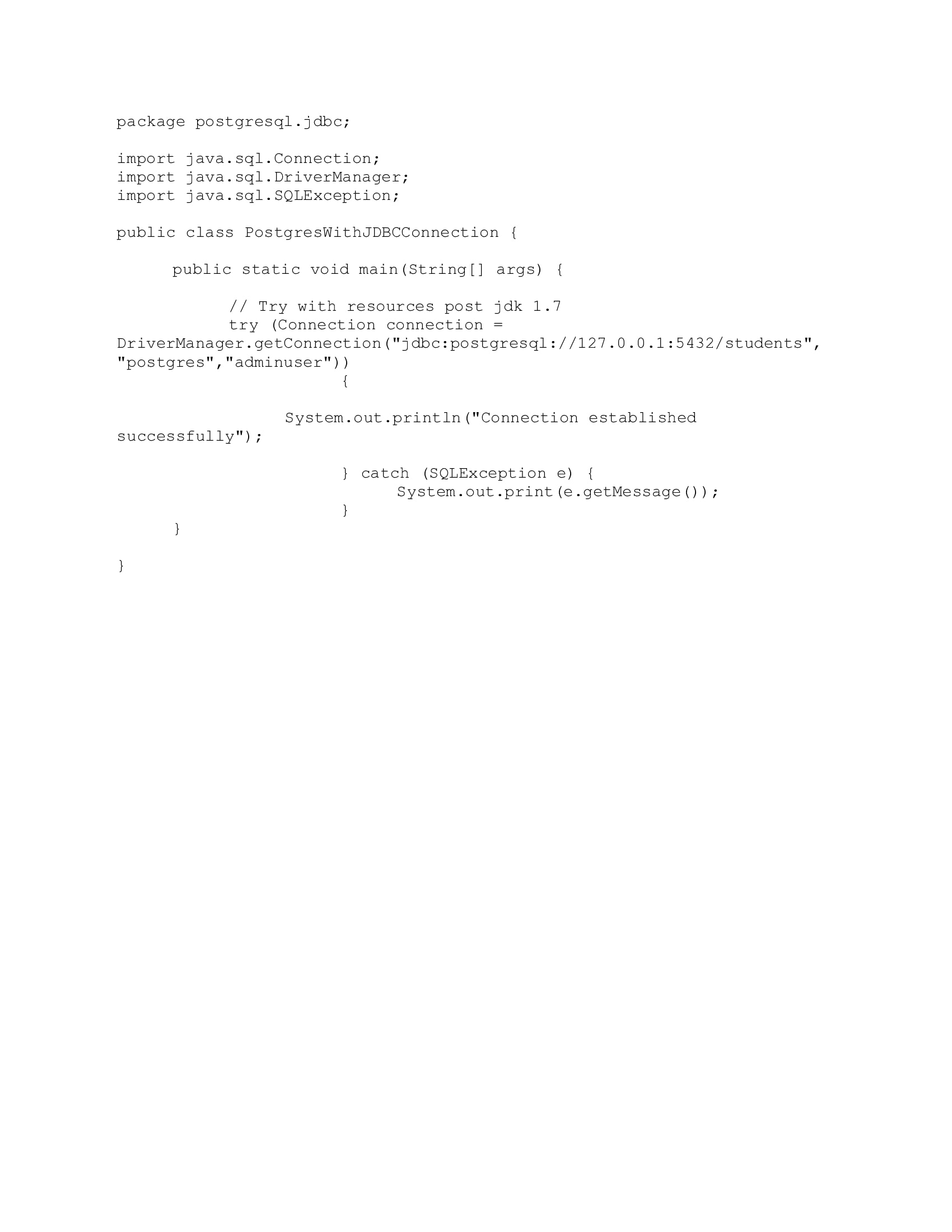PostgreSQL WHERE, ORDER BY, and GROUP BY Clauses
Overview A database clause is a conditional statement used to filter data from the database. There are various database clauses available in PostgreSQL, like Where, Order By, Group By, Having, Distinct, Limit, Fetch. In this first chapter of the tutorial we will cover Where, Order By, Group By clauses with suitable example. WHERE Clause The […]
2021-03-11
34,635 reads

